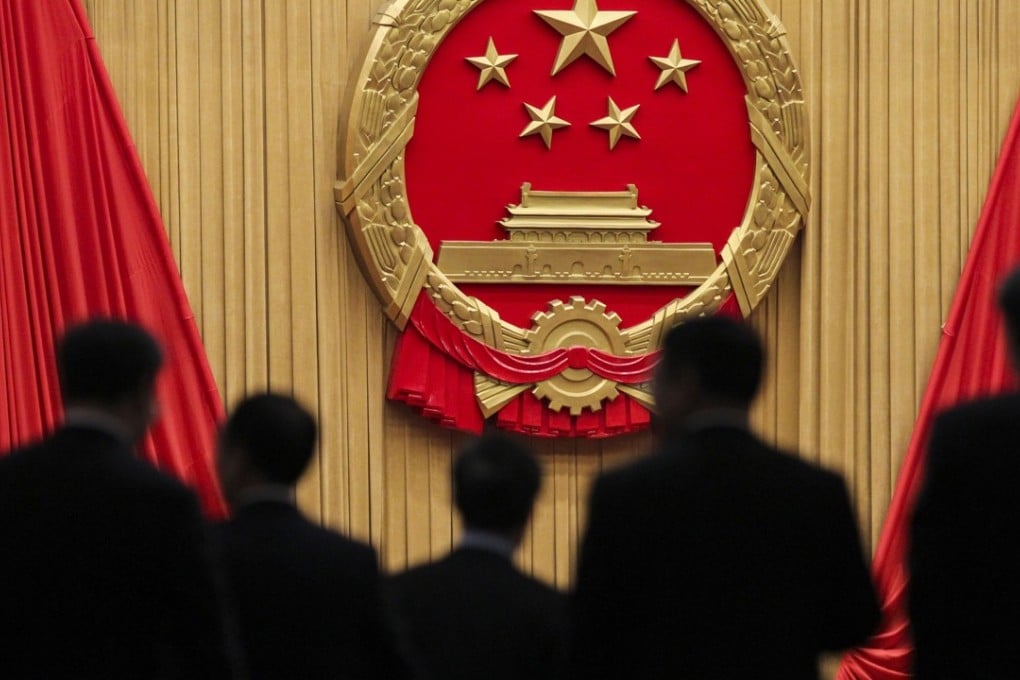China sets up new super agency to fight corruption
National Supervisory Commission has been written into constitution, while a new law detailing how it will operate is to be put to a vote on March 20

China’s legislature officially set up the country’s new super anti-graft agency on Sunday, but the most contentious part – giving it the power to deny suspects access to lawyers – will be voted on at the end of the annual session.
As well as repealing the presidential term limit, the legislature added a clause to establish the National Supervisory Commission, which will have a status close to the cabinet and is ranked higher than the supreme court and top prosecutor’s office.
With the constitution revised, the chief of the new agency will be formally appointed by the legislature next Sunday.
The commission is Beijing’s answer to controversy over the current shuanggui system, under which the party’s top anti-corruption body, the Central Commission for Discipline Inspection, has the power to summon and detain without charge any member it suspects of breaching party rules and regulations.
Suspects are barred from seeing a lawyer while they are detained under this system, which is laid out in party regulations but not the law.